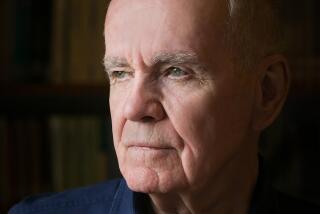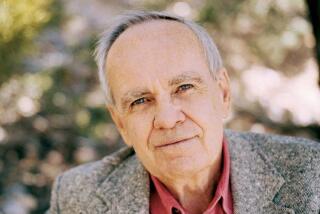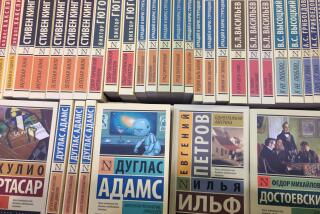‘McCarthyism’ in Field of Soviet Studies
Jerry F. Hough, a frequent commentator on The Times Editorial Pages, has made important contributions to the field of Soviet studies. Unfortunately, however, his writings have become increasingly tendentious over the years and have recently degenerated into regrettably strident misrepresentations of reality. A case in point is the article that appeared on May 11 under the title, “Western Press, Government Smears Soviets.”
Typically, this article is full of what are, to say the least, highly problematic assertions about both Soviet and Western policies. What is most disturbing, however, is the way in which Hough deals with those who subscribe to other interpretations--a group that includes the overwhelming majority of Western specialists in the field, the undersigned among them.
At best, according to Hough, those who disagree with him do so out of cowardice; they are intimidated by the alleged fact that “McCarthyism remains strong in the United States on the Soviet question.” The basic explanation Hough offers, however, is venality and corruption. “Scholars receive funding from the government . . . are drawn into consultation with the Central Intelligence Agency and must clear their publications on sensitive questions.”
In fact, this chain of misleading innuendoes is one of the very few instances of “McCarthyism” that we have ever encountered in the field of Soviet studies. While it is true that the U.S. government supports some academic research on the Soviet Union and that some scholars consult with the Central Intelligence Agency, these facts in no way justify Hough’s implication that U.S. scholarship on the U.S.S.R. is subject to governmental direction, let alone governmental censorship.
Nor does the fact that U.S. journalists frequently cite “diplomatic sources” justify his conclusion that “correspondents who report the embassy interpretation are essentially reporting the Administration line as objective analysis.” The Times correspondent in Moscow may have his own views on this attack on his integrity.
The fact is that most U.S. specialists on the U.S.S.R., academics, diplomats, and journalists alike, are dedicated to the unenviable but important task of understanding the behavior of a system that has a powerful vested interest in disinformation and deceit. The fact that Hough chooses to vilify these efforts and claim that he alone has access to “the truth” says much more about the author than it does about other members of the field. ALEXANDER ALEXIEV
JEREMY R. AZRAEL
ABRAHAM BECKER
FRANCIS FUKUYAMA
HARRY GELMAN
A. ROSS JOHNSON
BENJAMIN S. LAMBETH
Rand Corp.
Santa Monica
More to Read
Sign up for Essential California
The most important California stories and recommendations in your inbox every morning.
You may occasionally receive promotional content from the Los Angeles Times.










